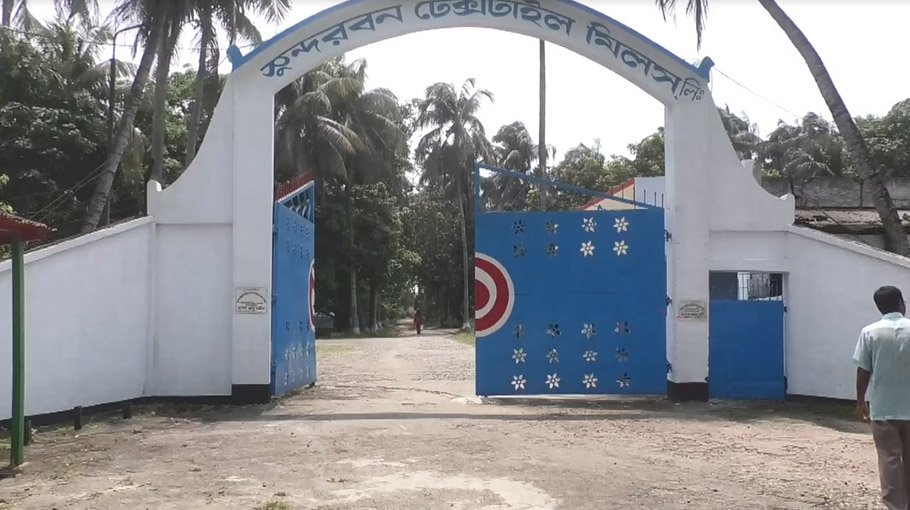Sundarban Textile Mills closed for 5 years

Satkhira's sole heavy industrial enterprise, Sundarban Textile Mills, has remained closed for the last five years, leaving valuable equipment worth crores of taka idle.
A large number of mill workers who are facing financial hardship are demanding reopening of the textile mills.
Established in 1983 on a sprawling 30-acre site in the Magura area on the outskirts of Satkhira town, Sundarban Textile Mills once employed over 1,500 workers. The mill boasted more than 39,000 spindles across its main unit and Neel Kamal unit, with a combined yarn production capacity of 10,000 kg per day.
But, the mill's fortunes took a downturn, leading to huge losses and the eventual layoff of workers in 2007. Subsequently, the mill operated on a service charge basis, but this method also proved ineffective. In 2017, Trade Link Ltd of Narayanganj took over the mill, which closed again in 2019 due to continued losses. As a result of prolonged closure, valuable equipment worth crores of taka are being damaged gradually as there are only eight officers remaining to oversee the premises.
As the mill has remained closed for five years, 400 workers in the area are grappling with unemployment. They have urged the government to reopen the industry immediately.
However, the authorities claim that they are trying to reopen the textile mills through PPP.
Lamenting the closure, worker Rezaul Haque Reza said, “I used to work here, and it provided a steady income. Now, it's closed. Our primary demand is employment. If the mill reopens, we'll have job opportunities.”
A committee has recently been formed to push for the mill's revival. Labour leaders argue that if the reopening is meticulously planned, it could benefit the authorities.
Sheikh Shaukat Ali, the office coordinator of Sundarban Textile Mills Chalu Bastobayon Committee, blamed wrong policies of the past for the mill's bankruptcy. He said, “Despite past setbacks, we urge the government to reopen the mill.”
Magfur Rahman, the committee’s member secretary, stressed that the government wouldn't sustain losses by restarting the mill.
He pointed out successful PPP ventures in other mills and urged a similar approach. Labour leader Sheikh Harun-ur-Rashid echoed concerns about the loss of valuable machinery and prolonged unemployment for workers if the mill remains closed.
Shafiul Bashar, the current in-charge of the mill, said: "The mill was built on 29.47 acres in 1980. It was launched in 1983. Over 1,500 workers were employed at one time. In 1992, out of the main unit, another unit named ‘Neel Kamal’ was formed. However, due to continuous losses, workers were dismissed in 2007 through a golden handshake. Some officials remained to look after the mill. Later, the mill was operated on service charge system. At some point it was also closed.”
“Later, an attempt was made to run through rental system. But due to power shortage and old machinery, the mill was closed again from 2019. As far as I know, BTMC is planning to run the mill through PPP (Public-Private Partnership) in future,” he added.
Deputy Commissioner Mohammad Humayun Kabir suggested repurposing the mill as a textile vocational institute.
He said, "The mill has been closed for a long time. Realistically, the textile mill may no longer be able to operate with continuous losses.
We are thinking whether it can be made a vocational institute. I made this proposal at the DC conference. This proposal has been accepted by the Ministry of Textiles.”



